Young people identify ways to make their city safer
Safer city youth advocates took part in community mapping sessions in Honiara to identify ways in which their neighbourhoods could be made safer and presented them to the city council. They share their views on how to make girls, neighbourhoods and communities safer.
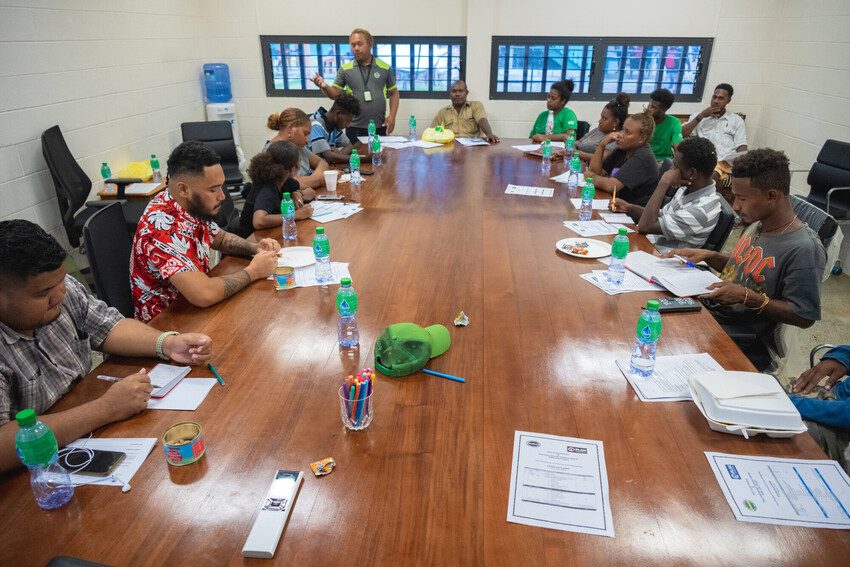
Rowena, Duen, Daisy, David, Agape and Bruno are young people advocating to make the city of Honiara and their communities safer. After taking part in community mapping sessions, they’ve identified ways in which their neighbourhoods could be made safer.
They met with representatives from the Honiara city council to present the results of a community mapping exercise they had undertaken in the city to improve adolescent girls’ safety, mobility and access to public spaces and transport in cities.
They share some of the problems they identified in their neighbourhoods and presented to the council; along with the challenges facing girls in the city and their ideas on how to make their communities safer.
Rowena
Rowena is the Safer Cities focal point for a community located in the Eastern part of Honiara.
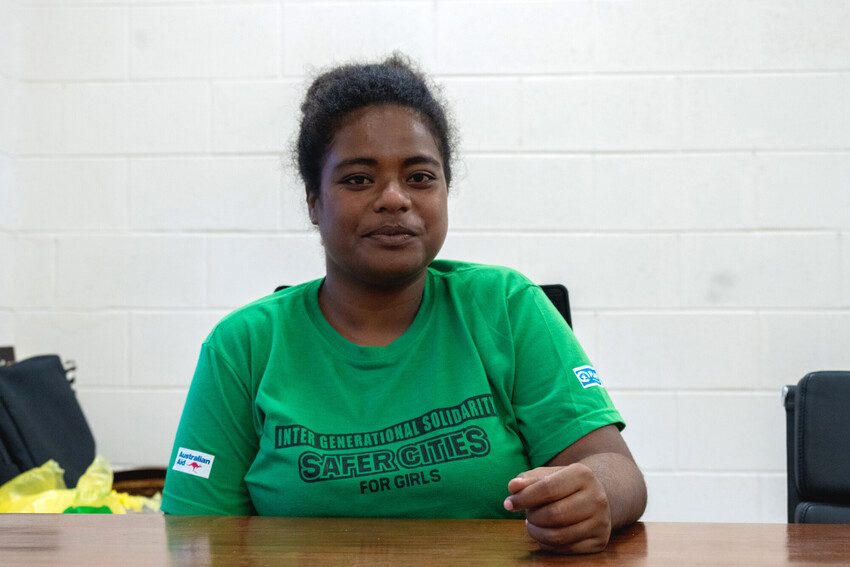
“In Kukum, we identified 2 issues that is waste management – we need a rubbish bin for our community, and the other one is street lighting for the safety of women and girls in our community.
The most pressing issue is the matter of lighting because we need to create a safer community for girls and women. If lighting can be installed in the areas where it is dark, it would make it much safer for women and girls to walk around freely.
When it comes to rubbish bins, it is important for us to have proper bins to dispose of rubbish because I believe it can affect our health. Every time it rains, we do not have anywhere to dispose of our rubbish so it gets thrown into the drains which blocks them and causes our roads to become narrower.”
Duen
Duen is the Safer Cities focal point for a community located in the Eastern part of Honiara.
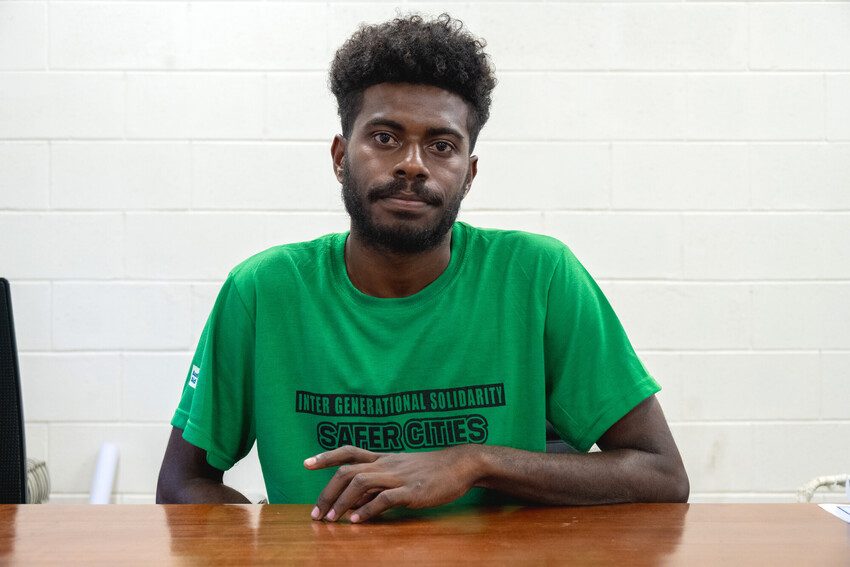
“During today’s session, we presented some community issues. All of these came from risk mapping and surveys we had conducted in the community. We tried to identify which areas needs to be addressed the most as it is unsafe for people in the community.
We presented two issues today. The main one in Tanuli community is lighting, especially for those living by the road. The area is dark and it’s unsafe for young people walking in the community. Because the area is dark and some houses don’t have any lights, people can’t walk around safely at night.
Waste management is also an issue for us too. There is one area for rubbish that the whole community uses, but there is only one big garbage bin which is often full so we would like another bin to use.
In our community, we do not have a community policy. There is antisocial behaviour, particularly among our youth. Maybe it’s due to their individual social life issues as they spend a lot of time together. So, behaviour change is really difficult to bring about as a community leader. It is hard to talk to them.
In order to have change, each community in Honiara city needs to work together. I would say to young people to get involved in community activities, and keep away from drugs and alcohol.”
Daisy
Daisy is a student studying at the University of the South Pacific. She is an intern for Plan International’s Safer Cities for Girls project and came along to the dialogue session with the Honiara council after being involved with the community mapping sessions.
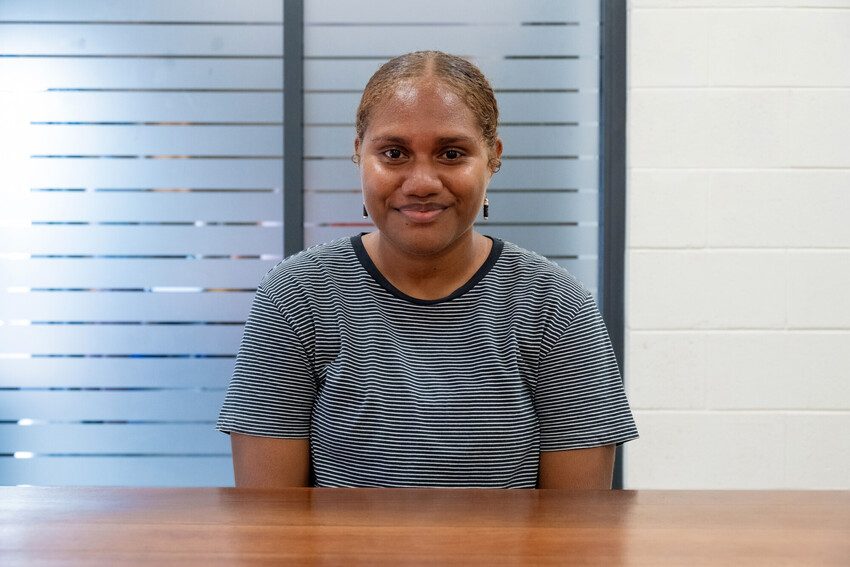
“I have learnt so much from the community mapping exercise. I came to observe and join in with the community groups. We learnt how to advocate and identify issues in communities throughout the sessions. Many communities identified problems.
My message to everyone is that we cannot find a solution if we recognise the problem but stay hidden in our homes. So, it is good that we identify issues, understand them, collaborate, and find the right people to seek assistance from. From there, we can address the issues that exist within our communities as a whole.”
David
David is the Safer Cities focal point for a community in the centre of Honiara.
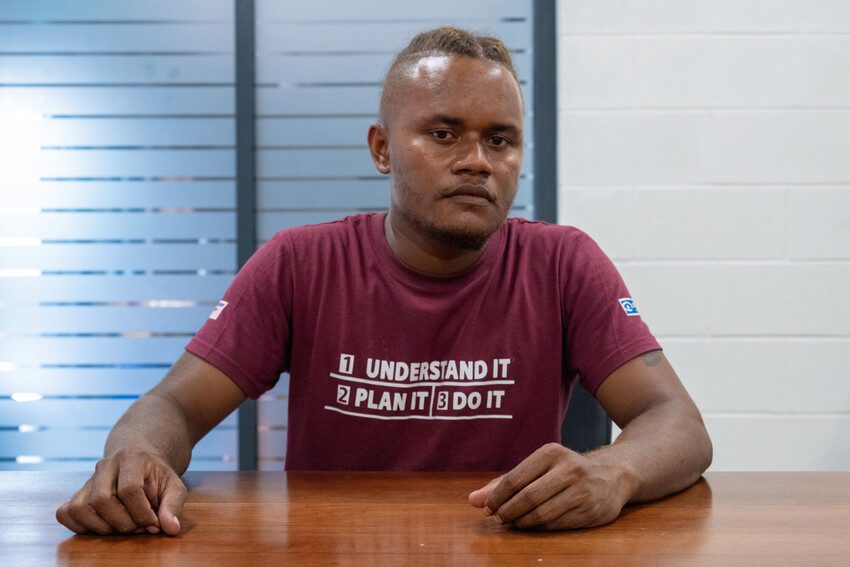
“This community around the Medical Compound which I look after as a youth leader, has been here for a long time now and still there’s no proper gates and lighting. Because it’s in the centre of town, people come and go all through the night until the morning. There are burglaries and people fighting, it isn’t safe.
Between the houses there are areas covered in bushes with no lights at all. During the weekends, you’ll see youths drinking, at times they’re not even from the compound, people from different places consume liquor here. It causes many disturbances in our community.
If lights were present in the community, when something happens to someone, you could see them. In my community, without lights, we can hear someone screaming but we can’t see them. Who’s with them there?
Without lights, you will have fear. Even if you’re a man, you can still be scared. Imagine how scared you feel when the lights go off in your home. So, lights are important. When there is light, you can be happy and enjoy the environment you’re living in.
So, the safety of my community for both boys and girls revolves around lighting.”
Agape
Agape is the Safer Cities focal point for a neighbourhood located in the Eastern part of Honiara.
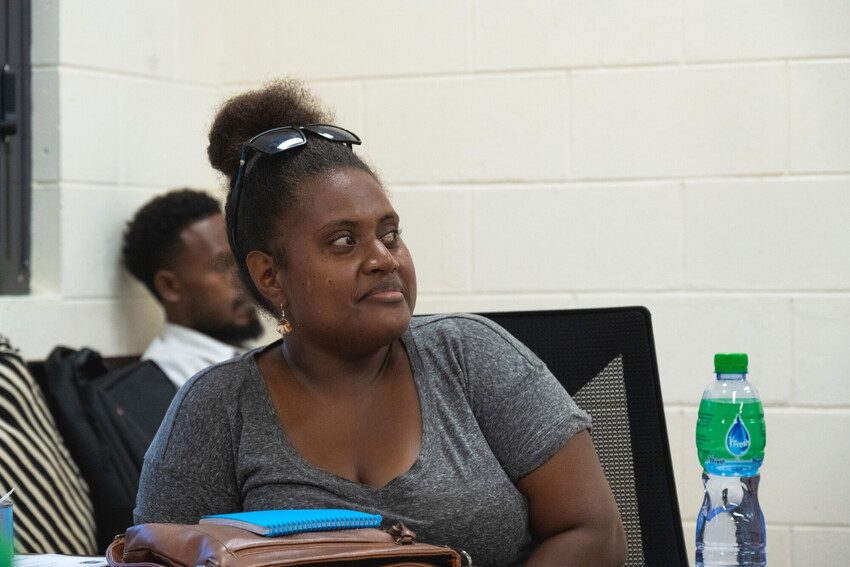
“In my community we have few issues. Even though it is generally safe, there are still problems such as dark corners that need street lights, rubbish disposal and waste management. And our youths are getting involved in alcohol and drug abuse.
If you want that place to be better or a safer community, it starts with you. You have to have a family mindset, to look after each other.
It is not the ‘self’ but the ‘we’. If we help each other, we can have a safe community and our women and girls can walk freely without any fear. So, it starts with each individual and remember that it’s not ‘me’ but ‘we’. The word ‘we’ should be part of everything we do and that will make a safer place for us all to live in.”
Bruno
Bruno is the Safer Cities focal point for a community located in the Western part of Honiara.
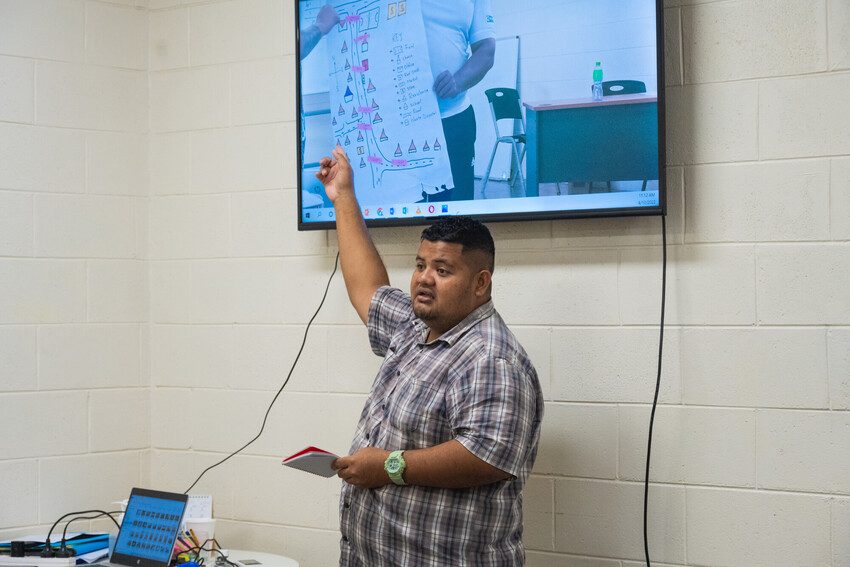
“As advocates for the Safer Cities for Girls project, we recognise the significance of road lighting, particularly at the Riffle Range bus stop which is approximately 100 to 150 metres inside the community. Either we put up street lights or we ask the Honiara Town Council to clear the trees so that there are no more dark corners along the road at night.
We need more bins along the roads so that the entire community does not put everything into one bin. The more bins there are, the more evenly it is distributed, preventing rubbish from overflowing and stray dogs roaming around the area and pulling out trash, making the area look unsightly.
Riffle Range is no different from any other communities in Honiara. We have our own challenges and we eagerly await any positive responses.
The other issue is lawlessness. The rate of drinking and misbehaviour in the community is extremely high. This is our home where we will spend many years, where our children will grow up. Girls, boys, and vulnerable members of the community are the people who require the most space and safety in order for them to be happy.
What really drove us to come this far are the challenges in our respective communities. The interests of young people today are different, so we cannot 100% address everything right now. But in order for the community to be a safer place for all of us, we need to collaborate. Working together with the city council and NGO’s can completely change a community.”
The Safer Cities Project
In the Solomon Islands, Plan International’s Safer Cities for Girls project aims to improve adolescent girls’ safety, mobility and access to public spaces and transport in cities.
Safer Cities for Girls is a joint programme developed in partnership between Plan International, Women in Cities International and UN-HABITAT. In Honiara, the programme is supported by the Australian Government through the Australian NGO Cooperation Programme.
The Safer Cities for Girls in Honiara programme works at multiple levels: with governments and institutions to influence policymakers to make laws and services receptive and inclusive of girls’ safety and interests; and with families, communities, adolescent girls and boys to challenge harmful social and cultural norms, and to promote gender equality, and girls’ rights, safety and inclusion.
Adolescent girls participate as active agents of change – building their individual capacity and collective agency to engage with decision-makers and communities through inter-generational dialogues in order to raise awareness on issues relating to girls’ safety and inclusion in Honiara, and to develop practical solutions to making the city more gender-equitable, safe and inclusive. Adolescent boys are also trained to promote positive masculinities, gender equality and support for girls’ rights to safety and participation.
Categories: Protection from violence


